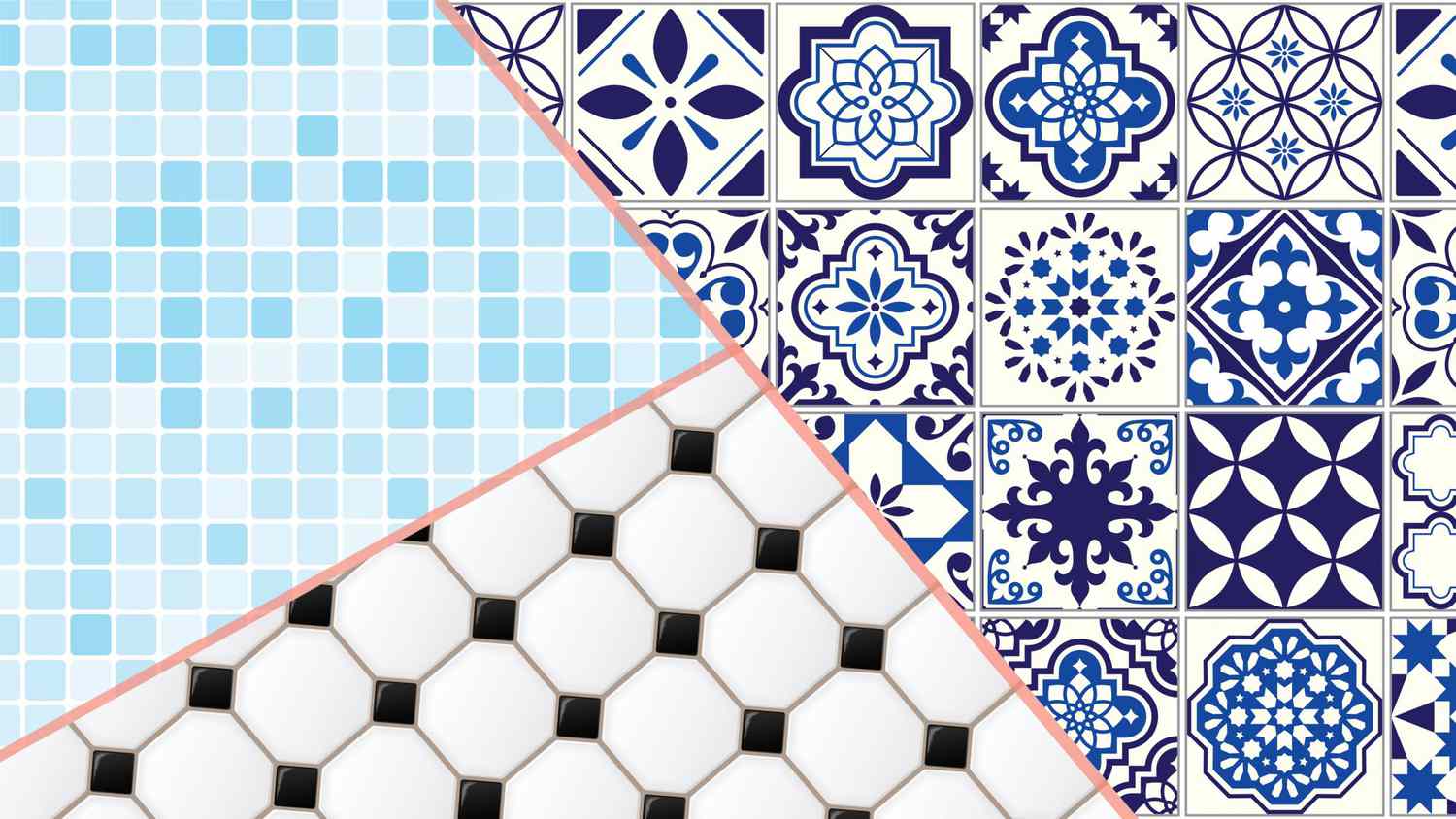Tiles are a popular choice for flooring and wall coverings in homes, offering durability, easy maintenance, and a wide variety of styles. Whether you’re remodeling your kitchen, bathroom, or living area, understanding the pros and cons of different tile types can help you make the best choice for your space. In this article, we will explore some of the most common types of tiles, their benefits, and drawbacks.
1. Ceramic Tiles
Ceramic tiles are a versatile and affordable option for various applications. Made from clay and baked in a kiln, ceramic tiles are available in a wide range of colors, shapes, and sizes.
Pros of Ceramic Tiles
- Affordable: One of the biggest benefits of ceramic tiles is their low cost compared to other materials like porcelain or marble.
- Easy to Clean: Ceramic tiles are resistant to stains and spills, making them easy to wipe down and maintain.
- Variety: You can find ceramic tiles in almost any color or design, allowing for endless possibilities in your home design.
Cons of Ceramic Tiles
- Chips Easily: Ceramic tiles can chip or crack if heavy objects fall on them, which may require expensive repairs.
- Cold and Hard: While durable, ceramic tiles can be cold and hard underfoot, which may not be ideal for all spaces, especially bedrooms.

2. Porcelain Tiles
Porcelain tiles are a type of ceramic tile but made from denser clay and fired at a higher temperature. These tiles are known for their strength and water resistance.
Pros of Porcelain Tiles
- Durable: Porcelain tiles are highly durable and less likely to crack or chip than ceramic tiles. They can withstand heavy foot traffic.
- Water Resistant: Due to their denser composition, porcelain tiles are more water-resistant, making them ideal for bathrooms and kitchens.
- Low Maintenance: Porcelain tiles are easy to clean and maintain, resisting dirt and moisture.
Cons of Porcelain Tiles
- Expensive: Porcelain tiles tend to be more expensive than ceramic tiles, which might make them less budget-friendly.
- Difficult to Cut: Due to their dense nature, porcelain tiles can be more difficult to cut, which may increase installation costs.
You can also find helpful resources related to tile installation and more on https://housewiseup.com/, which offers expert advice and insights into home improvements.
3. Marble Tiles
Marble tiles are a luxurious option that adds elegance and timeless beauty to any space. Made from natural stone, these tiles have unique veining patterns that make each tile one-of-a-kind.
Pros of Marble Tiles
- Aesthetic Appeal: Marble tiles are known for their beauty and sophistication, making them a popular choice for upscale homes.
- Heat Resistance: Marble is naturally heat-resistant, making it a good choice for areas like kitchens or fireplaces.
- Unique Patterns: Since marble is a natural stone, every tile has a unique pattern, giving your space an elegant, custom feel.
Cons of Marble Tiles
- Expensive: Marble tiles are one of the most expensive types of tiles, which can increase your renovation budget.
- Porous: Marble is more porous than other tiles, meaning it can absorb stains and liquids if not sealed properly.
- High Maintenance: To keep marble tiles looking their best, they require regular sealing and maintenance.
4. Vinyl Tiles
Vinyl tiles are a cost-effective, flexible, and easy-to-install option. They are made from synthetic materials and are available in a range of designs, including options that mimic wood or stone.
Pros of Vinyl Tiles
- Affordable: Vinyl tiles are one of the most budget-friendly flooring options available.
- Easy Installation: These tiles are relatively easy to install, with peel-and-stick varieties that can be installed without professional help.
- Comfortable: Vinyl tiles are softer and warmer underfoot compared to ceramic or porcelain tiles, which makes them comfortable to walk on.
Cons of Vinyl Tiles
- Prone to Scratching: While durable, vinyl tiles can get scratched or dented easily, especially in high-traffic areas.
- Not as Durable: Vinyl tiles have a shorter lifespan than natural stone or porcelain tiles, making them less suitable for long-term use.
- Less Elegant: While available in a range of styles, vinyl tiles may not have the same luxurious appeal as natural stone tiles like marble.
5. Glass Tiles
Glass tiles are a modern and stylish option that adds a sleek and shiny look to walls and backsplashes.
Pros of Glass Tiles
- Reflective Surface: Glass tiles can help reflect light, making your space appear brighter and more open.
- Water-Resistant: Glass tiles are highly resistant to moisture, making them perfect for wet areas like bathrooms and kitchens.
- Easy to Clean: They are resistant to stains and are easy to wipe clean, making them low-maintenance.
Cons of Glass Tiles
- Fragile: Glass tiles can break easily if not handled properly, especially during installation.
- Expensive: Similar to marble tiles, glass tiles can be costly, depending on the design and quality.
Conclusion
Choosing the right tile for your home depends on your budget, style preferences, and the specific needs of the space. Ceramic, porcelain, marble, vinyl, and glass tiles each have their advantages and disadvantages, so it’s important to weigh these factors carefully before making a decision.
